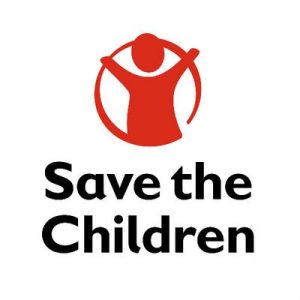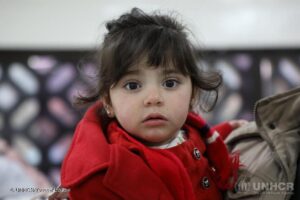La squadra somala di Bandy – un tipo di hockey – basata in Svezia, non ha vinto una sola partita durante la terza consecutiva World Championship. Eppure sta rafforzandosi trascinando folle di supporter. Ciò rappresenta un altro tipo di successo? Stanno facendosi spazio nella comunità locale? Ora che anche i team nazionali di Bandy afgano e siriano hanno iniziato a formarsi in Svezia – ecco che si osserva più da vicino l’impatto della “integrazione sul ghiaccio
This is Integration – on Ice
The Sweden-based Somalia bandy team didn’t win a single match in their third consecutive World Championships. But they’re still going strong, and drawing big crowds of supporters. Does this imply another kind of success? Are they finding their place in the local community? Now that Afghan and Syrian National Bandy teams have also begun to form in Sweden – here’s a closer look at the impact of ”integration on ice”.
The “African refugee team” as they were first known, started as an integration project in the small Swedish town of Borlänge. This community of 50,000 is now home to more than 3,000 Somalis. As many towns across Sweden that have welcomed large numbers of immigrants, Borlänge has struggled to integrate its new members. Has learning to play one of Sweden’s most popular winter sports helped the Somalis connect with their new hometown, and for the community to see them as one of their own? With most of team members being fairly young and of school age, it’s understandable that many initially struggle with the language, finding new friends, and understanding their place in Swedish culture. Abdirahman Barhadle, a 19 year old team member and a second generation Somali, notes that having a multi ethnic society is fairly new to Sweden. Unlike in Canada or the US, “There are no terms like SomaliAmerican, or Somali-Canadian. Somali-Swede…I’ve never heard that!” The team seems to have had quite an effect on the youth in the community. Player Hassan Farah, age 19, arrived in 2009 from Somalia and works part time as a sought after Bandy coach. Barhadle too, feels a special connection with the younger kids. “I’m seen as a role model, which I wasn’t expecting! Younger Somali boys always tell me they want to play, but now Swedish boys are saying that we inspire them too…” More than this, the players feel that the team has given them real opportunities in society. “Some players got into highschool because of this, and some got jobs,” says Farah. “Enabling things like that was the goal, and now we’ve reached it”. Barhadle is also optimistic about his prospects. “I’m going to study structural engineering at Dalarna University. I don’t worry about the future.” “But I know one thing, and that is that I’m going to continue playing. And our kids are going to be elite players.” Given that Sweden is now home to more than 200,000 refugees and asylum seekers, with rising numbers creating tensions across the country, it’s good news that the the idea of “immigrants on ice” seems to be spreading. The Afghan and Syrian communities in Sweden are about to start national teams of their own as well and have their sights set on the Bandy World Championships. It looks like this unusual integration project could be a winwin for all, regardless of how they score. See the Video News Release for download, on http://mediaroom.sweden.se What is Bandy? Bandy is a version of ice hockey played with a ball instead of a puck, popular in the Nordic region and and former Soviet states.






